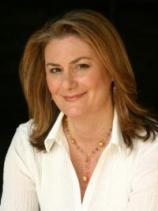Lisa Pearl Rosenbaum
Biography
Lisa Pearl Rosenbaum
It may come as a surprise to those familiar with the themes of my book that I come from a family of atheists. Both my grandfathers were men who had turned their backs on traditional religion, which they regarded as a form of bad science. My mother, daughter of a musician, student of Isadora Duncan dance, and a sculptor, claimed that art was all the spiritual sustenance the family needed. But I always suspected my family's fervent belief in mankind's possibilities had religious roots. Growing up in Great Neck, New York, I used to slip out to church services with my Christian friends and to synagogue with my Jewish friends, curious about what I was missing.
At eighteen, traveling alone in Europe, I came upon a rabbi with a long white beard standing in a doorway in Paris. I thought, how quaint, until I saw the plaque above him which read: On this spot, the Gestapo killed two brothers. It made me realize my religion was not something about which I could afford to be so removed and ignorant, that had I been born in another time and place, the fate of those brothers might have been mine.
Upon returning home, I embarked upon the study of Jewish history and theology that has run like a thread through my life. At New York University I majored in Religion and Philosophy and after graduating, spent a year studying International Relations at the Hebrew University in Jerusalem, Israel. What amazed me most about that year was how deeply moved I was by Israel's beauty, by its people, and its history. The experience brought me to a job at the Israeli Consulate in Los Angeles.
I moved on to Loyola Law School and worked as a lawyer for about five years. But even First Amendment cases relating to the separation of church and state could not overcome my deep boredom with the practice of law. I have left it to my husband to soldier on in that career.
Lisa Pearl Rosenbaum








